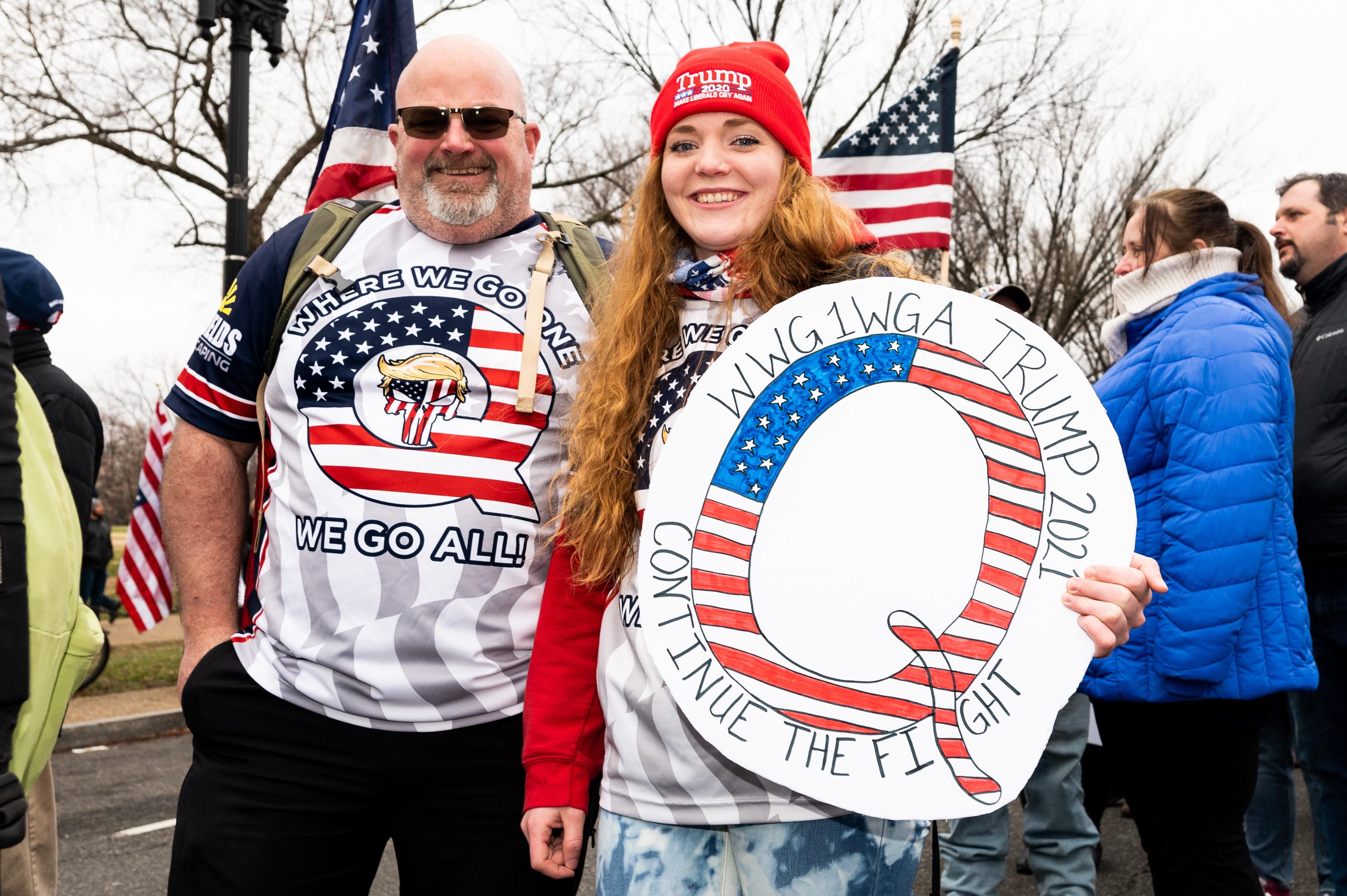Hard Numbers: Twitter boots QAnon, Nigerian ambush, China pulls border troops, US emissions drop
70,000: Twitter has removed more than 70,000 accounts promoting the QAnon conspiracy theory, some of whose supporters were among the angry mob that stormed the US Capitol building last week. QAnon followers believe that President Trump — who has refused to denounce the movement — is fighting a secret war against a "deep state" of Satan-worshipping pedophiles.
13: Jihadists killed 13 soldiers after ambushing a military convoy in northeastern Nigeria on Sunday. The attack was claimed by the Islamic State West Africa Province group, now affiliated with the Islamic State after breaking away in 2017 from Boko Haram, the Nigeria-based militant organization that's extended its footprint across the Sahel in recent years .
10,000: China has pulled back at least 10,000 soldiers from its contested border with India, where troops from the two countries were killed last summer amid deadly skirmishes sparked by a decades-long territorial dispute. While the Chinese military — more wary of the harsh Himalayan winter than the Indians — plans to redeploy some of the troops to Tibet and Xinjiang, there's growing optimism that cross-border tensions will ease if the Indian army also scales back its presence in the disputed area.
10: Greenhouse gas emissions in the US dropped by over 10 percent over 1990 levels in 2020, the largest decline since World War II. A new study says the biggest drop was in transport, one of the hardest hit sectors by pandemic-related lockdowns. The incoming Biden administration says it will prioritize greenhouse gas emissions by immediately rejoining the Paris Climate Accord.